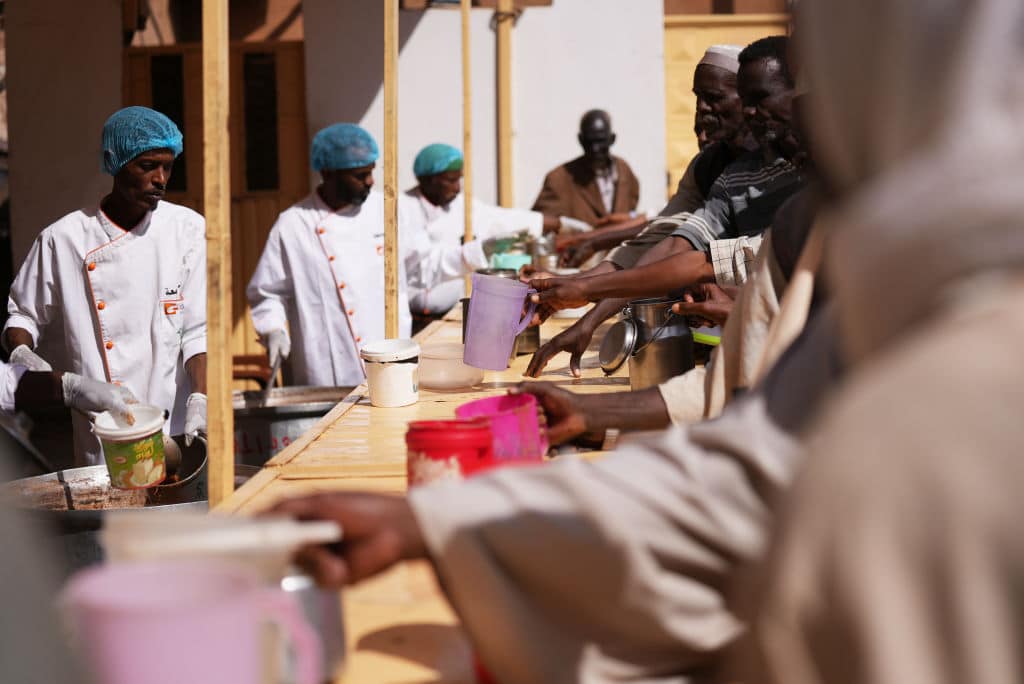Sudan
HipHopWired Featured Video
Source: Anadolu / Getty
The United States declared that the rebel forces in Sudan are carrying out genocide and have announced sanctions against its leader.
On Tuesday (Jan. 7), U.S. Secretary of State Antony Blinken announced that the nation was imposing economic sanctions on the Sudanese paramilitary group Rapid Support Forces (RSF) and its Mohamed Hamdan Dagalo, also known as Hemediti. “In December 2023, I concluded that members of the SAF (Sudanese Armed Forces) and the RSF had committed war crimes. I also determined that members of the RSF and allied Arab militias had committed crimes against humanity and ethnic cleansing,” Blinken said in a statement, adding that the RSF and their allies were responsible for the murders of “men and boys – even infants” in addition to numerous sexual assaults on women during the now 20-month long civil conflict. “Both belligerents bear responsibility for the violence and suffering in Sudan and lack the legitimacy to govern a future peaceful Sudan,” Blinken said.
After reviewing the horrifying information of suffering inside Sudan, I have concluded that members of the Rapid Support Forces and allied militias have committed genocide in Sudan. The United States is committed to pursuing accountability for these atrocities.
— Secretary Antony Blinken (@SecBlinken) January 7, 2025
The economic sanctions levied against the RSF target seven businesses based in the United Arab Emirates. Almost all of the businesses are connected to the gold trade, according to reporting by the BBC. Hemediti and the RSF have obtained control of half of the country of Sudan, which includes the lucrative mine in Jebel Abel in North Darfur as well as others along the country’s border with the Central African Republic. The sanctions are also extended to cover Hemediti’s brothers, Algoney and Abdel Rahim, preventing them and their families from entering the United States.
The UAE has strongly denied any involvement in the Sudanese civil war. “The decision… expresses the failure of the [US President Joe] Biden administration to deal with the Sudanese crisis and the double standards it followed [with regards to the crisis],” wrote El-Basha Tbaeq, an adviser to Hemediti in a post on X, formerly Twitter. The news comes months after international bodies such as The Integrated Food Security Phase Classification (IPC) have recorded the rise of famine throughout the Sudan.
The U.S. State Department’s report concurred, stating that “638,000 Sudanese” were “experiencing the worst famine in Sudan’s recent history, over 30 million people in need of humanitarian assistance, and tens of thousands dead.” According to the United Nations, 14 million have been displaced and over 24,000 have been killed in the fighting.
HipHopWired Featured Video
Source: picture alliance / Getty
The civil war taking place in Sudan has been raging for over a year – we set out to examine it, and its causes.
Last April, the country of Sudan fell into a civil war during the Islamic holy period of Ramadan as the Sudanese Armed Forces (SAF) and the paramilitary Rapid Support Forces (RSF), a coalition bolstered by the Janjaweed Arab nomad militia. The resulting conflict has led to intense fighting in and around the capital city of Khartoum and in the western Darfur region, where international observers have noted shocking instances of ethnic cleansing and other crimes not seen since the previous conflict in 2003. This is actually the third civil conflict in the nation – the last took place from 1983 to 2005 resulting in the creation of South Sudan as an independent nation in 2011.
The internal conflict between the SAF and the RAF began when Sudan’s strongman Omar al-Bashir (who created the RSF in 2013) was ousted in 2019 by the army, with the help of the RSF. Both factions would rule in a junta despite mediation from the African Union & international pressure, but as the SAF under Ahmed Fattah Al Burhan sought to transfer power to a democratic government, the RSF led by Mohamed “Hemedti” Hamdan Dagalo balked perceiving a Khartoum-centered administration. The RSF would attack government structures in Khartoum, and carry out attacks in Darfur which the Human Rights Watch said have been against the Massalit people and non-Arab communities specifically. The United Nations estimates that 20,000 have been killed and 33,000 injured including foreign nationals since the war began, with 7.7 million people displaced and 2.1 million who’ve fled the country as refugees.
There has also been a ramping up of sexual violence in the Darfur region to rival what took place there 21 years ago. “Men in RSF uniform and armed men affiliated with the RSF were reported to be responsible for 81% of the documented incidents,” said U.N. High Commissioner on Human Rights Volker Türk in March. But the attention from world powers – outside of allegations of military involvement from Russia and the United Arab Emirates – has been sorely lacking. “Why are people not paying attention to what is happening?” U.N. envoy Alice Nderitu said in an interview. “If we do not break the cycle of impunity, then we will not be able to address the root causes of the violence and re-establish solid foundations for the future.”
-
Pages

 State Champ Radio
State Champ Radio 


